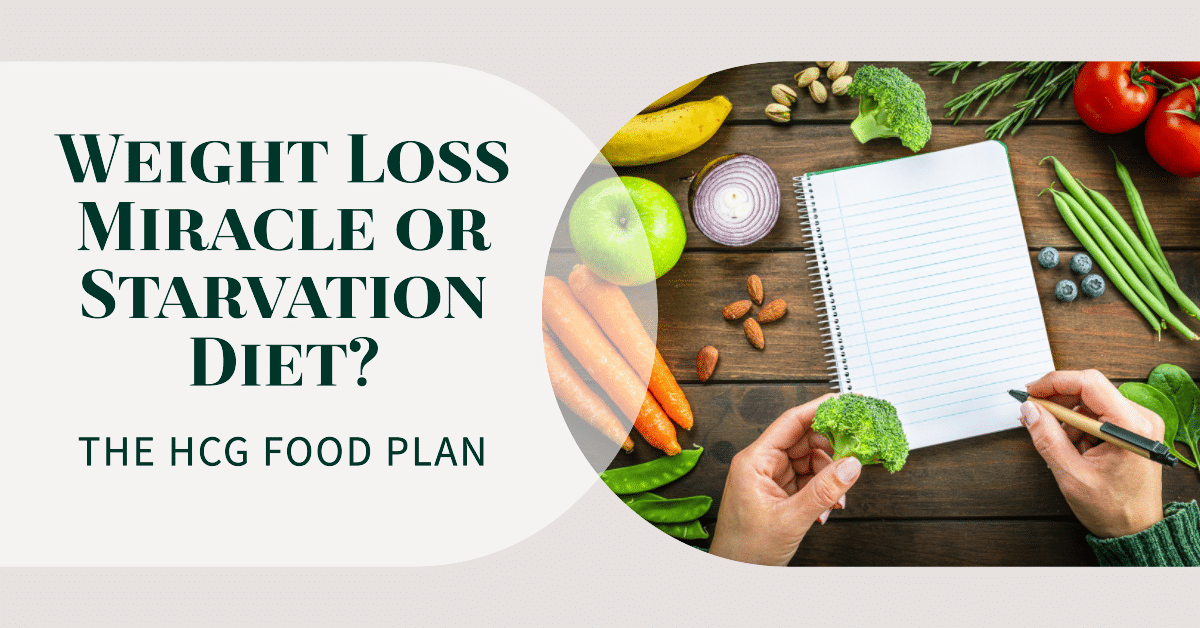The HCG diet food plan, based on human chorionic gonadotropin, has surged in popularity as a weight loss method, stirring both interest and controversy. This approach combines an ultra-low-calorie diet with HCG supplements or injections, promising rapid weight loss without hunger pangs.
Advocates of the HCG diet food plan claim it can help shed up to a pound a day. However, many health professionals express concerns about its safety and long-term sustainability. As with any significant dietary change, it’s crucial to understand the facts before considering this approach.
This comprehensive guide delves into the various phases of the HCG diet, outlines permitted and restricted foods, and objectively examines the potential benefits and drawbacks of this stringent eating regimen. Whether you’re curious or considering trying it yourself, you’ll find the essential information you need to make an informed decision about the HCG diet food plan.
Key Takeaways:
What is HCG and How Does it Work?
HCG is a hormone produced naturally by the placenta during pregnancy. Proponents of the HCG diet claim that it helps mobilize excess fat when paired with a very low-calorie diet, allowing you to preserve lean muscle mass.
The HCG diet typically involves taking HCG supplements, homeopathic oral drops, pellets, or injections along with consuming just 500 calories per day. By introducing HCG into the body from an outside source, supporters believe it unleashes stored and trapped fat for energy when calories are severely restricted.
However, most health experts agree there is no scientific evidence that HCG helps promote weight loss. The drastic calorie restriction is what leads to rapid weight loss, not the HCG.
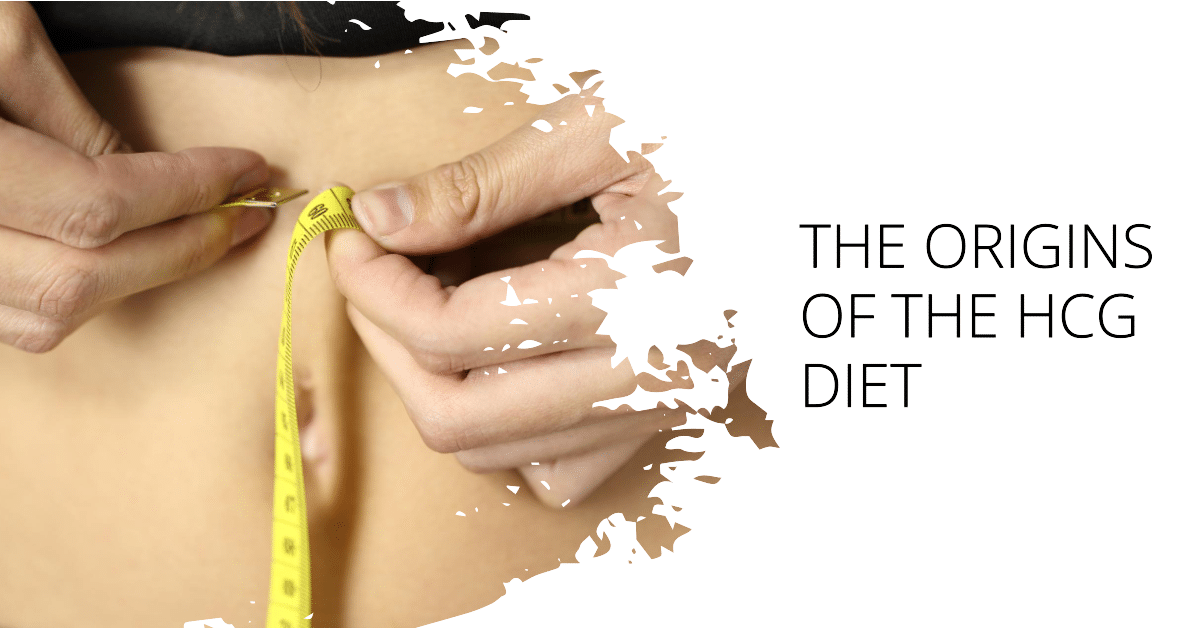
The Origins of the Controversial HCG Diet
The HCG diet was created more than 60 years ago by British endocrinologist Dr. Albert T.W. Simeons.
Simeons proposed that HCG allowed people to tolerate very low-calorie diets without hunger, leading to fast weight loss. He claimed it helped mobilize abnormal fat deposits that were resistant to diet and exercise alone.
Simeons originally developed the HCG diet protocol in the 1950s after studying patients with pituitary disorders. He published his original HCG diet plan in his 1954 book “Pounds and Inches.”
The diet became popular in the United States in the 1970s. However, it was widely criticized by many health professionals and eventually faded from popularity.
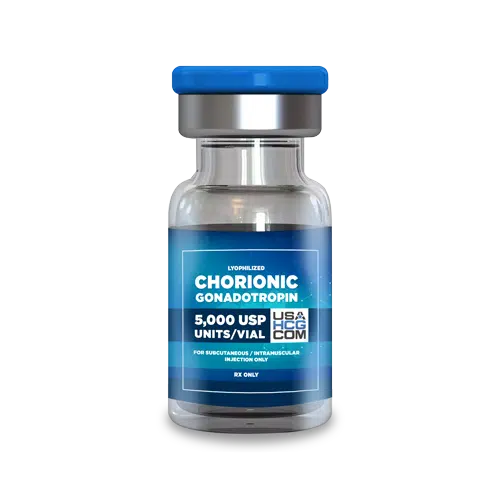
In recent years, interest in the HCG diet was revived with the rise of the internet and social media. Advertisements, blogs, and forums helped spread information about the diet, often making dramatic claims about the amount of weight loss possible on the HCG food plan.
Overview of the 4 Phases of the HCG Diet
The original HCG diet protocol outlined by Dr. Simeons consists of four distinct phases. The duration of the phases can vary based on how much weight you need to lose. Here is an overview of what each phase entails:
Phase 1: The HCG Loading Phase
Duration: 2 days
The first phase is designed to boost metabolism and involves eating a high-fat, high-calorie diet for two days. Simeons recommended eating as much fatty food as you want during this loading phase.
Allowed foods on the loading days include:
- Butter and oils
- Fatty meats like beef and pork
- Whole milk, full-fat cheese, ice cream
- Avocados, nuts, nut butters
The goal is to build up fat reserves so the body has something to burn during the very low-calorie phase.
Phase 2: Very Low-Calorie Diet and HCG
Duration: 3-6 weeks
Phase two combines an ultra-low-calorie diet of just 500 calories per day along with HCG supplementation. The allowed foods are very limited, focusing mostly on lean protein, fruits, vegetables, and whole grain toast.
HCG can be taken as:
- Injections prescribed by a doctor
- Homeopathic oral drops
- Pellets absorbed under the tongue
- Sprays
Most proponents claim you can lose around 1 pound per day on phase two of the diet without intense hunger.
Phase 3: Transition and Stabilization
Duration: 3-4 weeks
This transitional phase starts easing you off the 500-calorie limit while stopping HCG. You gradually increase your daily calories over a 3-4 week period.
The goal is to avoid shocking your metabolism by suddenly shifting back to a normal calorie intake. Your weight loss is expected to plateau during this phase.
Phase 4: Maintenance
Duration: Indefinite
The maintenance phase aims to stabilize your weight at your new “normal” level based on the loss during the prior phases.
You’re encouraged to maintain a moderately low-calorie diet during this stabilization period to avoid regaining the weight. The duration of phase 4 is indefinite.

Allowed and Prohibited Foods on the HCG Diet Food Plan
The foods allowed on phase two of the HCG diet are very specific and limited. Meals focus on low-calorie proteins, non-starchy vegetables, and small servings of fruit.
Allowed Foods:
- Lean beef (3oz per day max)
- Chicken or turkey breast (3oz per day max)
- Fresh white fish and shellfish
- Egg whites (max 2 per day)
- Low-fat cottage cheese or ricotta cheese (~1/2 cup per day)
- Fresh fruits and vegetables — except those prohibited below
- Melba toast (2 pieces per day) or grissini breadsticks (up to 24 inches per day)
- Tea, coffee, water, sparkling water
Prohibited Foods:
- Fatty meats and cuts with visible fat or skin
- All nuts and nut butters
- Oils, butter, mayonnaise, salad dressing
- All sugar and sweets
- Starchy vegetables like peas, corn, potatoes — only non-starchy allowed
- Pasta, rice, breads, cereal, grains
- Milk and yogurt
- Alcohol of any kind
- Fattening sauces and condiments
The diet has very specific guidelines about carefully weighing and measuring food portions. Certain preparation methods are required, like grilling instead of frying meats.
The Surprising Popularity of the HCG Diet
Despite the warnings against the HCG diet from mainstream health experts, it has developed an almost cult-like following in recent years. Supporters gather in dedicated Facebook groups, forums, and blogs to share tips, results, and encouragement on the diet.
So why has the HCG diet become so popular again despite the health risks and lack of scientific evidence behind it? A few key reasons help explain its rise:
Promise of Rapid Results
The chance to lose 20 pounds or more in just a few weeks is highly motivating for many people struggling with excess weight. The diet seems like the perfect quick fix.
Community Aspect
The encouragement, accountability, and shared struggles among HCG dieters helps spur many to stick to the rigorous program and extreme calorie cutbacks.
Low Cost
The diet itself costs very little since the foods are inexpensive. HCG supplements and injections are also relatively affordable, making the diet seem like an accessible option.
Ease of Access
You can readily buy HCG products and get tips and recipes online. No doctor prescription or supervision is required.
For desperate dieters, the lure of shedding pounds rapidly and joining an encouraging weight loss community outweigh the health risks and unsustainable nature of the HCG diet.
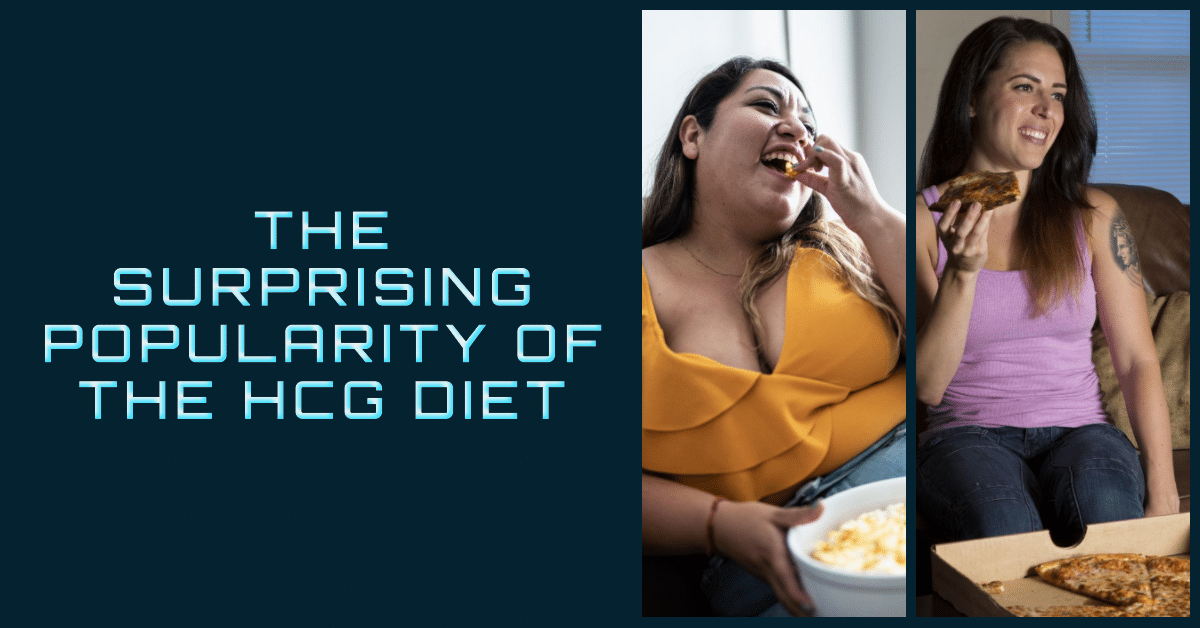
Sample Meal Plans and Recipes for Phase 2
Phase two of the HCG diet only allows 500 calories per day. Meals need to be carefully planned to meet the macronutrient and food restrictions. Here are two sample menus with recipes:
Sample Menu Day 1
Breakfast:
- 1/2 grapefruit
- Egg white omelet with spinach and mushrooms
Lunch:
- 3oz grilled chicken breast
- Salad with lettuce, cucumber, tomato, vinegar
Dinner:
- 3oz poached cod
- 1 cup roasted asparagus
- Melba toast
Egg White Omelet
- 3 egg whites
- 1 cup spinach
- 1/4 cup mushrooms
- 1 tsp fresh parsley
- Salt and pepper to taste
Whisk eggs and pour into skillet coated with cooking spray. Add spinach and mushrooms. Cook until eggs are set, fold over and season with salt, pepper, and parsley.
Sample Menu Day 2
Breakfast:
- Coffee or tea with 1 tbsp milk
- 1 apple
Lunch:
- Lean beef kebabs
- Side salad
Dinner:
- 3oz grilled shrimp
- 1/2 cup cucumber salad
- 1 slice melba toast
Grilled Shrimp
- 3oz uncooked shrimp, peeled and deveined
- 1 tsp lemon juice
- 1 garlic clove, minced
- Dash paprika
- Salt and pepper
Marinate shrimp for 15-30 mins in lemon juice, garlic, paprika, salt, and pepper. Skewer shrimp and grill for 2-3 minutes per side until opaque.
The HCG diet is not a balanced, nutritious eating plan suitable for the long haul. But these sample menus and recipes give you an idea of Phase 2 meals.
7 Criticisms and Concerns About the HCG Diet
While proponents praise the HCG diet for the rapid weight loss possible, many health experts have raised major concerns about risks and criticisms of this diet.
1. Extreme Calorie Restriction Causes Metabolic Slowdown
Consuming just 500 calories daily for 3-6 weeks is considered a “starvation diet” by most experts. When you severely cut calories for an extended time, your metabolism starts to slow down to conserve energy.
This makes it very easy to regain weight rapidly when you stop the 500-calorie protocol. It also often causes nutritional deficiencies over time.
Such an extreme calorie deficit should only be done under medical supervision. Most physicians do not recommend or prescribe the HCG diet.
2. No Evidence HCG Helps Burn More Fat
Multiple controlled studies have found that HCG does not help with fat mobilization or weight loss. The benefit comes from the severe calorie restriction alone.
A 1995 meta analysis found no evidence HCG increased fat loss compared to ultra-low-calorie diets without HCG. There is no proof it helps prevent muscle loss or reduce hunger pangs.
The largest and highest quality HCG diet studies show it provides no benefit for weight loss or fat burning.
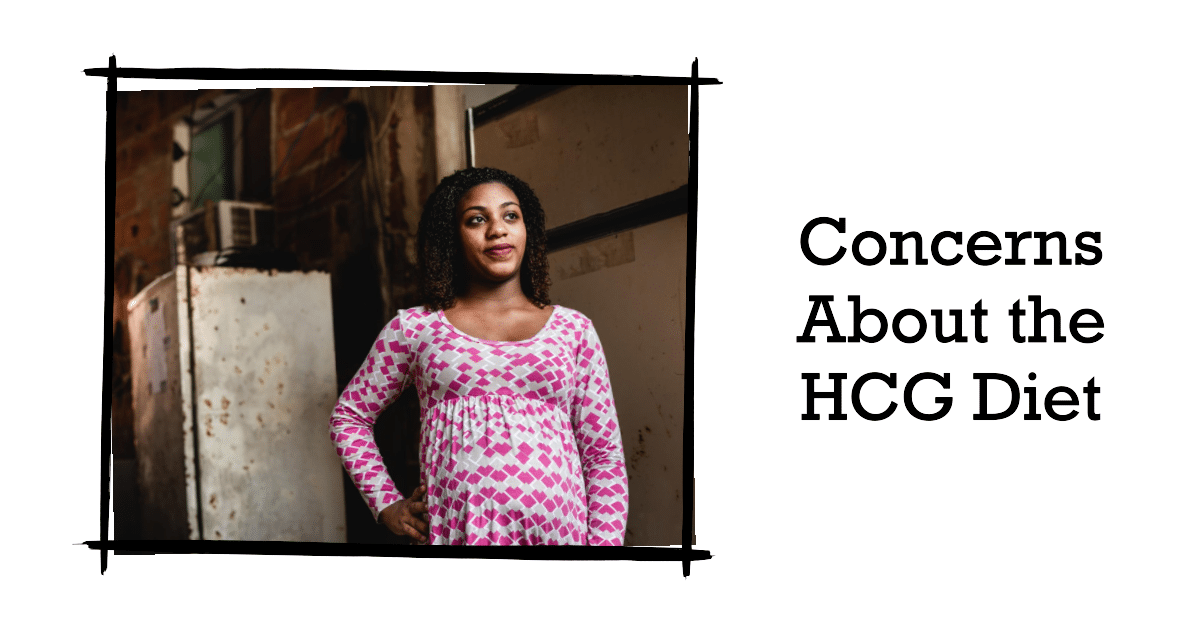
3. Most Weight Loss Regained After Resuming Normal Eating
Because metabolism slows significantly from the starvation-level calorie intake, most dieters end up regaining much or all of the weight they lost on the HCG diet.
It’s common to lose 10, 20, or even 30 pounds rapidly on phase two. However, continuing to lose or keep it off is rare. The weight typically comes back when normal eating is resumed.
The diet does not teach sustainable eating habits for long-term weight management. It promotes rapid “fix” instead of lasting lifestyle changes.
4. Encourages Unhealthy Relationship with Food
Due to so many food restrictions and the tiny 500-calorie limit, many HCG dieters develop an unhealthy relationship with eating.
When you are restricted from eating so many different foods or entire food groups, it can lead to an unhealthy attachment to those foods. Binge eating episodes are common once the diet ends.
This type of restrictive eating and limited calories can also trigger disordered eating patterns for some.
5. Possible Side Effects and Dangers
The possible side effects of the HCG diet include:
- Headaches
- Irritability
- Fatigue
- Muscle loss
- Hair thinning
- Gallstones
- Nutritional deficiencies
- Electrolyte imbalances
Consuming just 500 calories daily long-term can result in more serious complications like arrhythmias, edema, dehydration, and abnormal blood counts.
6. No Long-Term Weight Loss Data
Because the HCG diet is an extreme short-term method, there is no data showing it results in permanent weight loss over several years.
Most studies on HCG last only a few months. The limited nature of phase two makes it unrealistic for lifelong weight management.
Permanent lifestyle modifications around eating and exercise are needed to sustain long-term weight goals. The HCG diet does not teach these habits.
7. Not Recommended by Health Experts
No major health or scientific institution recommends the HCG diet. Organizations like the Mayo Clinic, U.S. News and World Report, and PubMed regard the HCG diet as unsafe, ineffective, and an extreme “crash diet“.
The FDA, FTC, and many physicians warn consumers about health risks and misleading claims about HCG supplements aiding weight loss. There are safer, more sustainable diets to consider.
Is the HCG Diet Safe and Sustainable? The Bottom Line
Very low-calorie diets like the HCG food plan are typically only prescribed under close medical supervision for severely obese people at high health risk. They are not recommended for general weight loss.
The claims that HCG helps mobilize fat, reduce hunger, and promote rapid weight loss have been proven false in multiple clinical studies. There is no evidence it aids fat burning or retention of muscle mass.
While promised fast weight loss on the HCG diet is certainly tempting, it is unrealistic to lose 30 pounds in 30-40 days safely or to keep it off long-term.
This extremely restrictive way of eating often leads to nutritional deficiencies, electrolyte imbalances, and gallstone formation. It can also trigger unhealthy attitudes about food and eating.
The best approach for safe, sustainable weight loss is gradual reduction of calories paired with increased physical activity and consuming a whole food, balanced diet.
Talk to your doctor before attempting very restrictive diets like the HCG food plan to make sure it is appropriate for your situation.
For most people, making slow but steady changes to your lifestyle habits around food and exercise is safer and leads to better long-term health and weight management.
Frequently Asked Questions About the HCG Diet Food Plan
Does HCG really work for weight loss?
Based on clinical studies, there is no scientific proof that HCG aids weight loss or fat burning in any way. The ultra-low 500 calorie intake is what causes rapid short-term weight loss on the diet.
How much weight can you lose on the HCG diet?
It’s possible to lose 1 pound or more per day restricting intake to just 500 calories. However, most of this initial weight loss is water and glycogen stores, not body fat. Much of the weight is typically regained after resuming normal eating.
What are the side effects of HCG?
Headaches, fatigue, irritability, hair thinning, muscle loss, nutritional deficiencies, and electrolyte imbalances are some possible side effects. More serious complications can include blood clots, gallstones, arrhythmias, and edema.
Can men do the HCG diet?
The HCG diet is not only for women. However, some of the additional calorie restrictions in the original protocol were aimed at women. Men should add an extra 200-300 calories daily to reduce adverse effects.
Is the HCG diet safe long-term?
No, HCG diet phases lasting more than 3-6 weeks could result in serious health risks due to the starvation-level calorie intake. The diet is not a realistic long-term eating plan.
Top 10 Tips for Safely Losing Weight
Losing weight in a healthy, sustainable way does not require extreme calorie restriction or reliance on unproven supplements like HCG. Here are 10 tips:
- Cut out added sugars, sweetened drinks, and refined grains
- Load up on non-starchy vegetables and leafy greens
- Focus on lean proteins, healthy fats, high-fiber carbs
- Reduce portions but do not skip meals entirely
- Find an exercise routine you enjoy and stick with it
- Drink plenty of water
- Get enough quality sleep
- Manage stress levels
- Weigh yourself weekly at most — not daily
- Be patient — sustainable weight loss takes time
Focus on gradual, modest calorie reduction, increased physical activity, and forming healthy lifelong eating habits for the best weight loss results. Avoid extreme diets that cause rapid weight fluctuation. Losing 1-2 pounds per week in a safe, steady way should be the goal.
I’m Amy, a health blogger who’s passionate about helping people achieve their weight loss and wellness goals through evidence-based information and practical tips on nutrition, exercise, and self-care. When I’m not blogging, I enjoy hiking, practicing yoga, and experimenting with healthy recipes in the kitchen.

